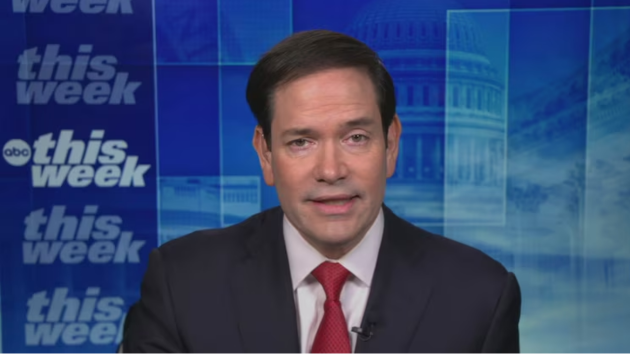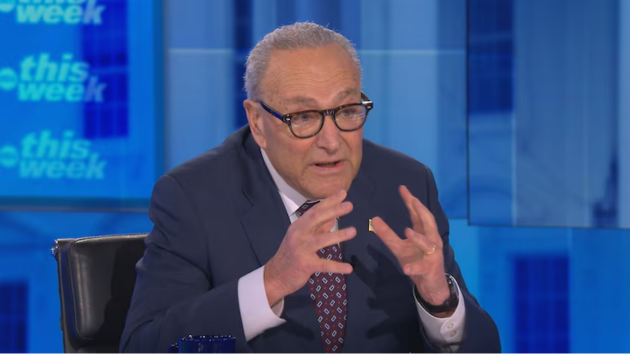Witnesses tell lawmakers US intel community downplaying cases of ‘Havana syndrome’
Written by ABC Audio ALL RIGHTS RESERVED on May 9, 2024

(WASHINGTON) — Witnesses testifying at a congressional hearing have accused the U.S. intelligence community of deliberately downplaying dozens of Anomalous Health Incidents (AHIs) affecting U.S. personnel, often referred to as “Havana dyndrome.”
“It is my view that the executive branch, particularly at the behest of and manipulation by officials within CIA, is not truthfully reporting what it knows,” said Mark Zaid, an attorney representing more than two dozen victims of “Havana syndrome,” citing U.S. intelligence that he says he’s seen in his work but could not reveal in an unclassified setting.
An assessment released last year by the U.S. intelligence community found it was “very unlikely” that a foreign adversary was behind the cases of the so-called “Havana syndrome” affecting U.S. diplomats, intelligence community members, and Defense Department officials.
Each of the witnesses at Wednesday’s Homeland Security subcommittee hearing disputed the intelligence community’s claim, citing undisclosed classified intelligence that they say proves their assertion.
Retired U.S. Army Lt. Col. Greg Edgreen, who ran the Pentagon’s investigation into “Havana syndrome,” told lawmakers the attacks are likely tied to “directed energy,” shot through a kind of futuristic weapon. He said there are “extremely strong” indications that at least some of these incidents were the result of attacks conducted by Russian intelligence.
“Give me 20 minutes in a [secure facility] and I’ll convince all of you,” Edgreen said.
When asked for comment, a CIA spokesperson referred questions to Office of the Director of National Intelligence, which issued last year’s assessment.
ABC News has reached out to the ODNI for comment.
Last March, Director of National Intelligence Avril Haines said in a statement that the health events were probably the result of other factors such as “preexisting conditions, conventional illnesses, and environmental factors.”
Haines added that the evidence also did not indicate that a “causal mechanism,” such as a weapon, or a “unique syndrome” brought on the reported symptoms.
Zaid told the committee he’s aware of attacks on U.S. personnel all over the world, including on U.S. soil. Many attacks, he says, were concentrated in Northern Virginia, an area home to many CIA officers.
“There are at least two dozen cases that even the CIA acknowledges they can’t explain away by any other alternative factors,” Zaid added, referring to a 2022 assessment by the agency that examined roughly 1,000 “Havana syndrome” cases.
Lawmakers on the committee promised to continue to examine these claims and hear more from the witnesses in a classified setting.
Defense Secretary Lloyd Austin, testifying elsewhere on Capitol Hill Wednesday, was asked about compensation for Defense Department personnel who have reported symptoms associated with AHI.
“Will you commit to this committee that the department will work on that and provide the required payments to victims?” asked New Hampshire Democrat Sen. Jeanne Shaheen.
“Absolutely, senator,” Austin said.
The Helping American Victims Afflicted by Neurological Attacks (HAVANA) Act of 2021 passed by Congress authorizes government agencies to provide payments to personnel who have suffered brain injuries from hostilities while on assignment.
A U.S. official told ABC News on Wednesday the Department of Defense has “provided medical assessment and/or treatment in the military health care system for more than 200 people” relating to AHI since 2016. But the official wouldn’t say how many of those were deemed to have suffered traumatic brain injuries, citing patient privacy rules.
But so far, none has received payments.
“DOD has not made any HAVANA Act payments yet, because we are working to establish implementation guidance for the Department,” the official said. “We expect to issue such guidance this summer.”
A study published last month by the National Institutes of Health concluded: “There was no significant MRI-detectable evidence of brain injury among the group of participants who experienced AHIs compared with a group of matched control participants.”
But the Pentagon might provide compensation to some possibly affected individuals, regardless.
“The implementation guidance will address criteria for determining who qualifies for compensation. We anticipate that MRI results will be one of several factors considered in making the determinations,” the official said.
Copyright © 2024, ABC Audio. All rights reserved.
 KVSP
KVSP 




